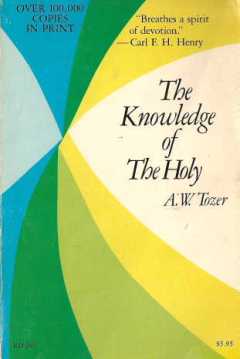Earlier this month a colleague told me I have the habit of using “secular” words to describe biblical truth. He meant it as a compliment, and I received it as one.

Not everyone expects their leaders, and especially not their pastors, to be well-informed about what goes on “out there.” We expect our pastors to be experts on many things, especially “religious” things, yet the least of these is what we call “daily life.” So, what I’m learning, is that when a pastor uses everyday jargon to describe truths found in the Bible, it takes a moment for the crossover effect to kick in. Yet the long-term benefits far outweigh the momentary obstacle. (And I’m not talking about being trendy, hip, cool, or other attempts at being “relevant.”)
Why do I use words like ambition and sustainable to describe Paul’s vision for the Christian life (as described in Colossians 2:6-7)?
Isn’t “ambition” bad when it rears its ugly head in the church? And “sustainability” sounds like one of those catchwords only an earth-worshiping environmentalists would say as they tell me about global warming.
Nope and nope.
- Ambition, when given God, is neither selfish or destructive. When He does a great work for us (by the Gospel), and in us, and through us, then the ambitious work of God will bring great healing and hope to a broken and lost world. Selfish ambition is the great enemy (Philippians 2:1-5), which Jesus defeated for us by emptying Himself, with the greater ambition to live as a Servant and joyfully do all of God’s will. God is ambitious. More than we’ll ever know.
- Sustainability is no mere buzzword to be employed by environmentalists (of which I am one, and think Christians should be, but that’s another discussion for another day).
Think about the day before you go on vacation. How fun is it to meet all those deadlines, set things up for your colleagues to succeed and your customers to be taken care while you’re gone? Then waking up in a cold sweat on the morning of your vacation as you remember “just one more thing” you must handle before leaving on that jet airplane. What about you and your smartphone being the reason the plane can’t take off, because you’re still on your phone as the doors close at the gate? (I was that guy recently. Sorry again to Alaska Air flight 861.)
Is working each day like it’s the day before vacation sustainable?
No.
Rather, we toil long and hard so that when we go to play, we are free from our other obligations. Then think about your vacation time, of lounging around, reading a good book, taking in the sights, eating out for lunch and dinner, and caving into the urge to buy that trinket you know won’t make it home in one piece. Is that sustainable?
Neither state is sustainable — from being only a producer (making things and money), and then switching to consumption mode (taking in experiences, food, etc.) — which is why sustainability makes sense when we talk about following Jesus. Otherwise we’ll have a passion ambition to “do something great for God.”
As a pastor I daily encourage to focus on the great work Jesus has done for us, which becomes what He does in us as we trust and obey Him. His work is not yet complete as He does this same great work through us.
Jesus calls us to follow Him fully, as ones rooted in the faith, built up, strengthened, taught, and overflowing with thanksgiving (returning to Colossians 2:6-7). Paul used everyday words from daily life that evoked pictures of reality they knew well (walking, growing like a plant or tree, the realm of construction, laying a foundation, learning in a classroom, and flooding like a river, to name six in those verses).
What’s the real reason I use words like that?
Because we are hard-wired for compartmentalizing our faith to the “spiritual” side of life, and then getting on with our “real” lives. And pastors can be terrible enablers in this. Know this: Jesus will have nothing to do with that split duality. He gets right at our heart issues, not content to deal with merely our felt needs. (With that impulse in mind, my wife daily writes on the Sacred Mundane, because everything matters, not just our so-called “spiritual” life.)







 “Our God Above,” a song of God-centered renewal, from
“Our God Above,” a song of God-centered renewal, from 


